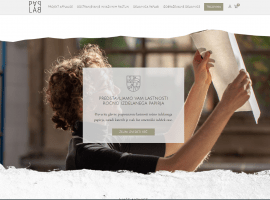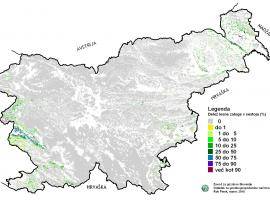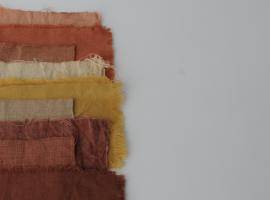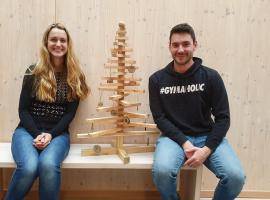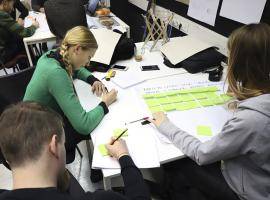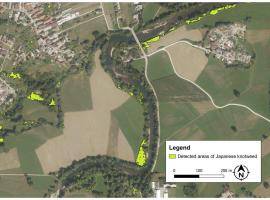APPLAUSE Journal 5: Delivering public services and urban innovation in times of COVID-19

Read more about the solutions in Journal 5!
Executive summary
COVID-19 has had a noticeable effect on APPLAUSE and the plans the consortium had for this last phase of project implementation. Faced with the new reality and the uncertainties that surround it, the City of Ljubljana and its partnership has quickly adapted and found the solutions that enabled the project to continue its activities during the past 8 months. The main impacts of this pandemic have been:
- Moving all face-to-face meetings of the consortium to online sessions,
- Cancelling most of harvesting campaigns with citizens except for one or two that could be done in early autumn with a reduced number of volunteers,
- Stopping temporarily the collection of IAPS in the city’s collection centre,
- Stopping temporarily the activities in the paper and wood working workshops,
- Moving some of the workshop’s activities to the schools’ premises,
- Since no activities targeted to elderly population could be organised, the consortium produced packages of DIY products to use at daily activity centres for the elderly,
- Intensifying the communication via social media, specially through videos of DIY products and food recipes, and
- Finally, due to the COVID-19 restrictions, the mobile exhibition could only be displayed in a few locations. Nevertheless, the team is already planning to continue touring the exhibition beyond 2020, when the pandemic situation improves.
Such circumstances have not impeded the fulfilment of key milestones for the project, including:
- The completion of the IAPS ground survey of the land owned by the City of Ljubljana to almost 100%. With this data, the city now counts with an excellent inventory on the presence of IAPS in its territory. The project has collected 30,000 data entries for 121 plant species.
- Despite the cancellation of volunteering harvesting campaigns, the consortium has been able to collect the quantity of biomass necessary for the design and production of the IAPS-based products. A total of 15 tones herbaceous biomass and 60 m3 wood biomass has been harvested by APPLAUSE.
- APPLAUSE has now finalised the IAPS-based products which are now ready for commercialisation: letter paper with embedded IAPS flowers, New Year’s decorations made of wooden and paper IAPS, wooden compost box, a memory game to help recognise IAPS, a set of balcony garden seeds and handcrafted and machine-made paper sheets made of IAPS.
- The go-to-market strategy for APPLAUSE has been finalised. This strategy which targets four customer segments (schools, tourists, families and locals) establishes three main distribution channels: online store, network of physical stores and social network/Instagram shopping. Partner VOKA-SNAGA is already working on the development of the online store which should be ready by the end of 2020.
- As mentioned before, given the difficulties to organise face-to-face activities with citizens during the pandemic, the project has focused more on digital activities with the development of multiple videos that empower citizens to take action while at home (on DIY products, recipes with IAPS ingredients…) some of them reaching more than 17,000 views on Social Media. The municipality has also strengthened its presence on national and local TV.
- Finally, the consortium has continued to develop the circular model for APPLAUSE, which includes four circular business models (paper products and workshop services, wood products and workshop services, IAPS machine-made paper and wood type letter printing workshop) and four other business solutions that act as enablers of APPLAUSE circular models (IAPS maps, IAPS management IT platform, specialised IAPS wood harvesting services and specialised herbaceous IAPS harvesting services). This work has been crucial in supporting the future continuation of APPLAUSE activities once the project finishes in December 2020.
All this has been possible thanks to the capacity of the consortium to adapt to the new circumstances. The city leadership could have very well stopped all non-essential projects, including APPLAUSE. However, the decision was the contrary, to continue business-as-usual, as much as possible, while giving priority to essential services. One of these essential services is waste management which is the responsibility of the public company VOKA-SNAGA, a key partner in APPLAUSE. During the pandemic, VOKA-SNAGA has had to deal with increased levels of waste generated (single use plastic, increased packaging and fly tipping) while in short of personnel. Nevertheless, the company has remained actively involved in APPLAUSE.
While this situation is likely to continue for some time, many governments and private sector actors have realised that the circular economy holds the key to a greener post-pandemic recovery. And APPLAUSE can contribute to this by linking the circular economy to the conservation of urban biodiversity, all with the support of its environment conscious citizens.
1. Introduction
2. Account on the progress made by the project since March 2020
3. Delivering public services and urban innovation in times of COVID-19
4. Summary on implementation challenges
The different projects within the Urban Innovative Actions programme face similar implementation challenges. These have been grouped in seven thematic areas. The following table provides an overview of how these challenges are impacting the APPLAUSE project (red: high importance, yellow: medium importance and green: low importance). Arrows indicate if they have raised in importance (ñ), lowered in importance (ò), or remained the same (ó) compared to the previous journal.


